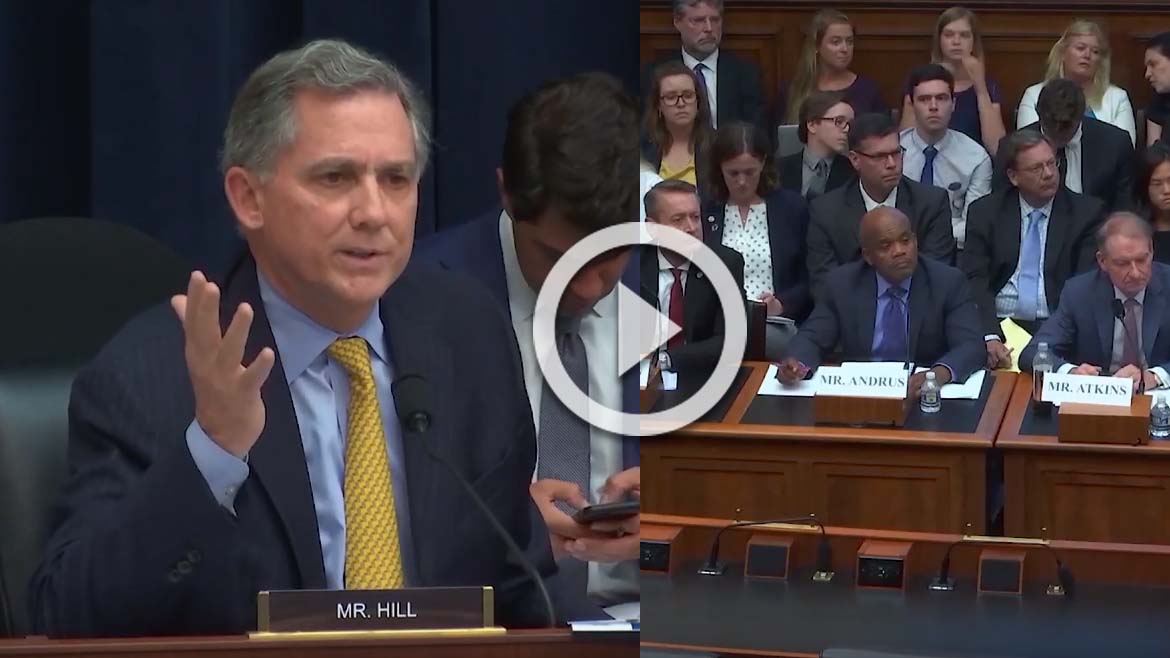 |
Click HERE or on the picture above to watch Congressman Hill's questions from this week's
House Financial Services Committee hearing. |
WASHINGTON, D.C. — This week, Congressman French Hill (AR-02) participated in a House Financial Services Committee hearing titled, “Building a Sustainable and Competitive Economy: An Examination of Proposals to Improve Environmental, Social and Governance Disclosures.” During the hearing, Congressman Hill argued that individual corporate leaders should be responsible for determining what is considered material information for public disclosure, instead of a one-size-fits-all federal standard that fails to consider unique business circumstances.
Key Excerpts:
“I come at this from the point of view that, if we are reporting things that are material, we can’t just go from one subject to another and compel something as material just because somebody thinks its material. If it’s not material in the judgement of these fiduciaries that we’ve appointed as board members, we should not be reporting it as material. I quote here from a Fortune 500 board member, “We’re asked as a corporation to take a public stance on very complicated issues. We’ve got crime in the cities, we’ve got 100--no we’ve got 1,000 complicated issues that are very material to our civilization. But if we spend our time in meetings taking public stands on all of them it would be quite counterproductive. I don’t like the fact that people are constantly presenting these issues but never discuss solutions.” And so, I do think our companies are sensitive to their philanthropic objectives. That quote was from Charlie Munger of Berkshire Hathaway. His colleague, Warren Buffett, on the issue of climate change in insurance companies has argued that there are more material things than climate change in any one year that are more material to our property and casualty pricing that change every year.” You’re not making a hundred-year decision and you’re able to reflect those different risks.”
“While we are concerned about these issues, like climate change, if they are material to a company I think they ought to be disclosed. If it is material, officers and directors ought to have the right to determine that fact and customize it for their reporting and not be compelled to a uniform standard set by somebody else.”



